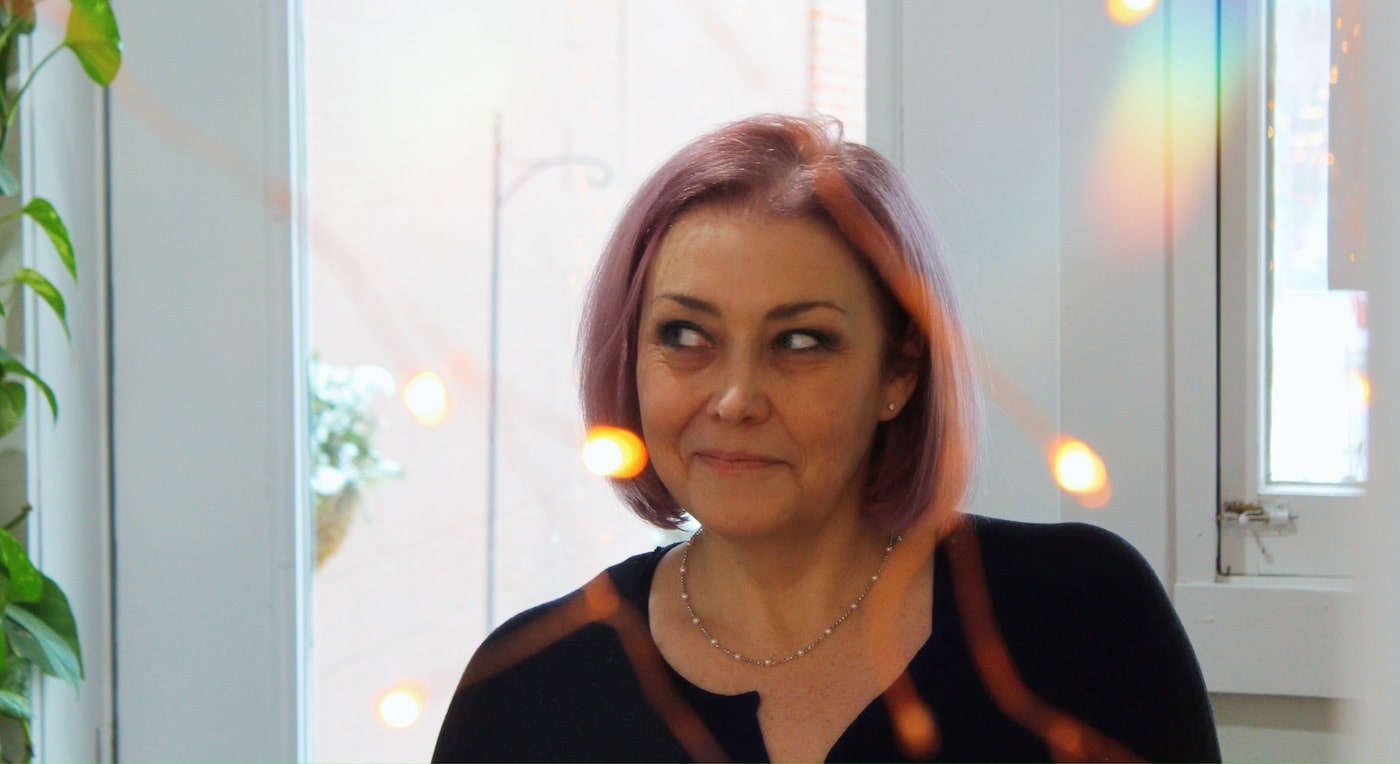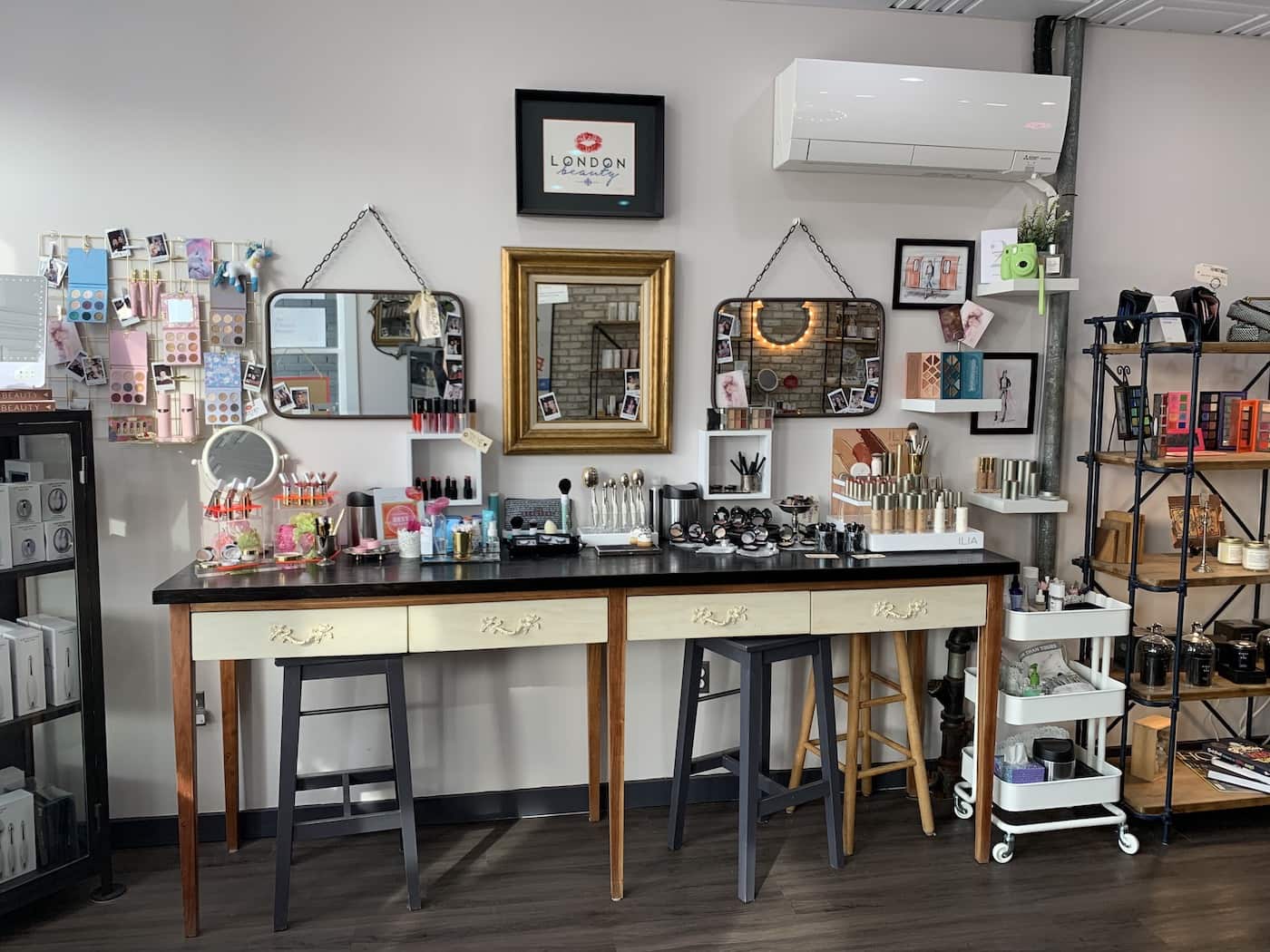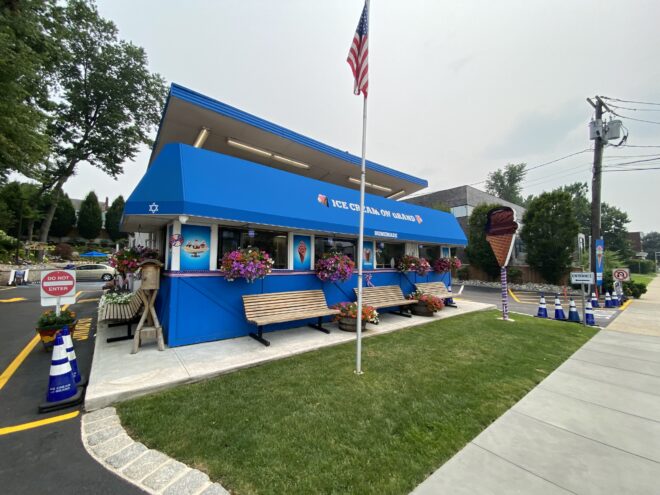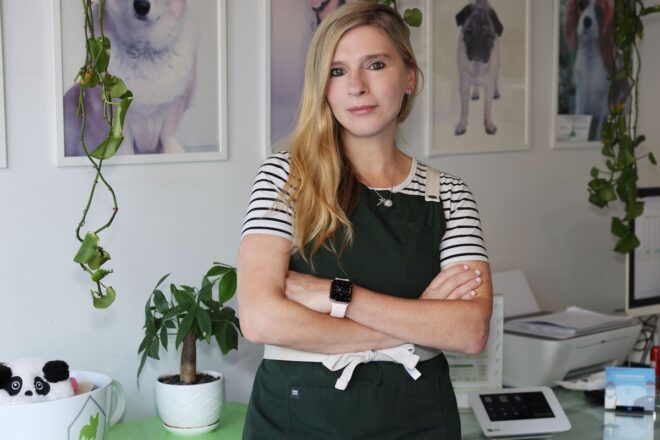London Beauty
Editorial Team
7 min read
In this installment of Meet the Merchant, we speak to Kathleen London, the owner of London Beauty in Brighton, Michigan. Kathleen’s beauty store aims to provide eco-conscious luxury paired with affordable convenience. London Beauty’s broad line of retail products are all made in the US, and over 85% of her inventory is made by female-owned businesses. She shares how she started her business online before opening a storefront, growing her services intentionally, and how the COVID-19 pandemic has affected her.
Clover: Hi Kathleen, thanks for making time to connect with us today. How did you come to open London Beauty?
Kathleen London: My background is in fashion and retail. I was working in New York City when I had the idea for London Beauty. I’ve always had a passion for beauty and all things makeup.
I noticed there was space in the beauty market where brands were missing a big opportunity. Most brands were dividing beauty consumers into two types: a person who already understood how to compost, recycle, and use clean, green makeup, or a person who wanted makeup to perform and do fancy tricks—glitter, red lipstick, contouring, the whole nine yards. No one was offering clean makeup that performed well.
I wanted to create a small business that spoke to everyone. We have so many women who come in and tell us, “I really love highlighter, but I don’t know how to use it.” We also have women who ask us, “I really want to make better choices with my cosmetics, but what does that mean?”
London Beauty is all about helping women feel beautiful exactly where they are. We’re not trying to talk someone into a color or a vibe or glitter or a bronzer. We listen to what they have to say, and help them facilitate the best version of themselves.
I started the brand when I was living in New York in 2017. I’m from the Midwest originally, and when life brought me back here, it was the right time to focus on this business. I launched the website first in 2017, but I knew I wanted to open a location. In 2018 we opened the doors to our brick-and-mortar location.
Clover: What was it like going from online to opening your physical location?
London: I started my e-commerce site with the pure intention of also opening a physical location. The timing of both was so close that my build up with my website was almost a clanging drum to me opening my brick and mortar, as opposed to its own thing.
I had six to nine months of selling through our website before I really started dedicating my time to the brick-and-mortar location. That’s not nearly enough time to build a following! In reality, I opened quietly in the vacuum that is the internet. I had enough of a push from my own social media channels to get some traffic on the site, but the physical store is what really launched London Beauty.
People like to shop with people, otherwise they just go to Amazon, or The Derm Store, or some other big box retailer. There are so many big players online that to find success as a small merchant is all about building relationships.
Clover: How have you built those relationships through your store?
London: We started adding on services in the store. Offering makeup was a really easy move: we have a makeup artist on staff who customers can visit to play with different products and learn how things work at no charge.
We also realized that we needed to differentiate between a customer who was trying to explore a new look—someone who would buy whatever products she tried—and someone who just needed to get their makeup done and go. We now carve out dedicated time to the person who wants to come in and get a full makeup look without shopping. We can do prom makeup and wedding makeup for those customers.
We’ve also partnered with HydraFacials. We didn’t want to compete with salons or estheticians in the area, but HydraFacial offers a smaller version of their machine that we can use to give quick facials. Our goal is to help people take better care of their skin on a regular basis; customers can have a quick 15-minute breather in the middle of the day.

Clover: Talk to us about how you use Clover.
London: When I started comparing the features and benefits of different POS options, I liked that you could choose to work with First Data [now Fiserv] or use your own processor. I felt like the processing fees were more competitive. We aren’t a high-volume business like a coffee shop, nor are we a boutique that sells one expensive item a week. We’re in between those extremes, so Clover’s competitive transaction fees were the right fit for us.
We use a Clover Mini and a TON of apps. I love how usable the Mini is, and that it takes Apple Pay. We use the back office element of Clover a lot; you can literally do everything you need to do with that software. I’m also in the middle of a web rebuild and switching over to WooCommerce with Clover.
As far as apps, we use Homebase and Gusto. They have been phenomenal, and they are so easy to use. With Homebase, my team gets notifications on their phones reminding them that it’s time to work: they love it. We also offer promos to our customers. We tried Clover Promos on a lark, and we kept it because it’s simple and everybody liked it.
Clover: We’re glad to hear that. How has your business been throughout the pandemic?
London: In a typical year, May is like a Christmas month for me. May is usually a big, big month, because everyone’s finally getting out of their houses. In January and February, the weather is crummy and everyone’s broke. By the middle of March, things start to pick up and by May, business is booming.
In 2020, I went from planning for my great May to basically having another February. We had some sales, but they’re not where they should have been. Instead of getting a Christmas I got a February. But, I’m grateful for my February. It’s not what I should have had, but it’s certainly more than I could have had.
Now, we’re starting to see business trickle back in. We’ve been getting more regular foot traffic. But people are still a little wary. They don’t necessarily want to be out.
I’m being very mindful of what new products I bring to the store. I couldn’t add anything new for a while, and now I’m just trying to be sensitive to the fact that some of our customers’ jobs have changed or disappeared. I want to make sure that people still, no matter what, can find something at a price point that works for them.
Clover: What have you learned that you would share with other business owners?
London: You have to be thinking about your clients the whole time. If you’re not thinking about your client, you kind of miss the mark.
The other piece of advice I have for other merchants is to collaborate, collaborate, collaborate. When I first moved here, I didn’t know anyone—I was an outsider. I made it a point to really collaborate with other small businesses on the street. I get along superbly with my neighbors on either side of me: one sells ready-to-wear clothing, and one does framing and art. It’s made all the difference to know who they are, find out what they’re doing, and work together to create and drive traffic.
Read more of our Meet the Merchant stories for real-life experiences of small businesses in action all over the country.
Related Posts
Ice Cream on Grand
The Pupper Club
Popular Topics
Stay In Touch
Sign up and learn more about Clover.
Thank you for your subscription!
Recent Stories
- Jewelry store supplies and equipment needed for opening day
- How small businesses can use employee discounts to retain staff
- Tips and tricks for opening an outdoor pop-up restaurant
Please share your contact information
to access our premium content.
Thank you for sharing your contact information.
Download Now





